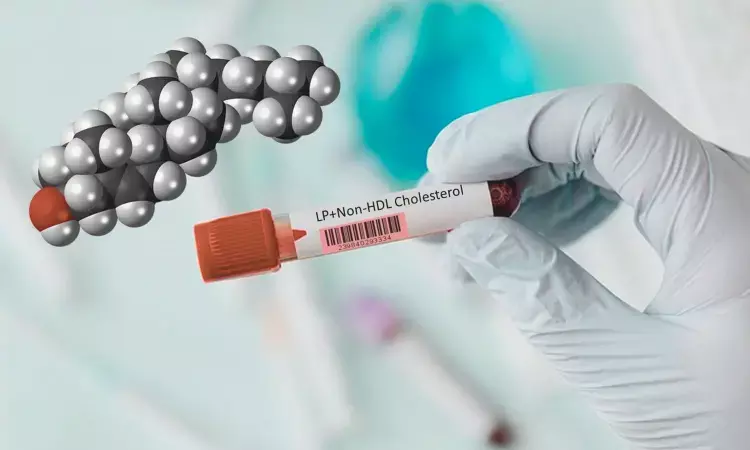- Home
- Medical news & Guidelines
- Anesthesiology
- Cardiology and CTVS
- Critical Care
- Dentistry
- Dermatology
- Diabetes and Endocrinology
- ENT
- Gastroenterology
- Medicine
- Nephrology
- Neurology
- Obstretics-Gynaecology
- Oncology
- Ophthalmology
- Orthopaedics
- Pediatrics-Neonatology
- Psychiatry
- Pulmonology
- Radiology
- Surgery
- Urology
- Laboratory Medicine
- Diet
- Nursing
- Paramedical
- Physiotherapy
- Health news
- Fact Check
- Bone Health Fact Check
- Brain Health Fact Check
- Cancer Related Fact Check
- Child Care Fact Check
- Dental and oral health fact check
- Diabetes and metabolic health fact check
- Diet and Nutrition Fact Check
- Eye and ENT Care Fact Check
- Fitness fact check
- Gut health fact check
- Heart health fact check
- Kidney health fact check
- Medical education fact check
- Men's health fact check
- Respiratory fact check
- Skin and hair care fact check
- Vaccine and Immunization fact check
- Women's health fact check
- AYUSH
- State News
- Andaman and Nicobar Islands
- Andhra Pradesh
- Arunachal Pradesh
- Assam
- Bihar
- Chandigarh
- Chattisgarh
- Dadra and Nagar Haveli
- Daman and Diu
- Delhi
- Goa
- Gujarat
- Haryana
- Himachal Pradesh
- Jammu & Kashmir
- Jharkhand
- Karnataka
- Kerala
- Ladakh
- Lakshadweep
- Madhya Pradesh
- Maharashtra
- Manipur
- Meghalaya
- Mizoram
- Nagaland
- Odisha
- Puducherry
- Punjab
- Rajasthan
- Sikkim
- Tamil Nadu
- Telangana
- Tripura
- Uttar Pradesh
- Uttrakhand
- West Bengal
- Medical Education
- Industry
Remnant Cholesterol Tied to Higher Risks of AKI and CV Events in Diabetes Patients After CABG, Study Finds

China: A recent study published in Cardiovascular Diabetology identified elevated remnant cholesterol as a significant factor contributing to poor outcomes in patients with diabetes or prediabetes following CABG.
"In the short term, higher remnant-C levels were associated with an increased risk of stage 2/3 acute kidney injury. Over the long term, each 1-standard deviation rise in remnant-C corresponded to a 6.6% greater risk of major adverse cardiovascular events, a 7.1% higher risk of all-cause mortality, and an 11.2% elevated risk of myocardial infarction," the researchers reported.
Remnant cholesterol (remnant-C) is a known contributor to atherosclerotic cardiovascular disease (ASCVD), particularly in individuals with impaired glucose metabolism, who face a heightened residual risk even after undergoing coronary artery bypass grafting (CABG). Despite this, the specific role of remnant-C in this high-risk population has not been thoroughly explored. To address this gap, Zhe Zheng, Chinese Academy of Medical Sciences and Peking Union Medical College, Beijing, People’s Republic of China, and colleagues aimed to evaluate the association between remnant-C levels and prognosis in a large prospective cohort of patients with impaired glucose metabolism and ASCVD following CABG.
For this purpose, the researchers consecutively enrolled adult patients with prediabetes or diabetes undergoing isolated CABG into a longitudinal cohort between 2013 and 2018. They assessed the impact of remnant-C on both short-term and long-term outcomes following CABG. Short-term outcomes included major perioperative complications, while long-term outcomes focused on major adverse cardiovascular and cerebrovascular events (MACCEs). Remnant-C levels were analyzed as both categorical and continuous variables. The researchers employed logistic regression, Cox regression, and restricted cubic spline analyses with multivariate adjustments.
The following were the key findings of the study:
- Patients with elevated remnant-C had a higher incidence of acute kidney injury (AKI) stage 2/3 compared to those with low remnant-C (3.2% versus 2.4%; OR: 1.404).
- Each 1-standard deviation increase in remnant-C was associated with a 16.6% higher risk of AKI stage 2/3 (OR: 1.160).
- In long-term outcomes, after a median follow-up of 3.2 years, 9.3% of patients (1,251) experienced major adverse cardiovascular and cerebrovascular events (MACCEs).
- Each 1-SD increase in remnant-C was linked to a 6.6% higher risk of MACCEs (HR: 1.066), a 7.1% higher risk of all-cause mortality (HR: 1.071), and an 11.2% higher risk of myocardial infarction (HR: 1.112).
- These associations remained consistent when remnant-C was treated as a categorical variable.
- The relationship between remnant-C and MACCEs was independent of LDL-C levels; higher remnant-C levels were associated with increased MACCE risk regardless of whether LDL-C was ≤ 2.6 mmol/L or > 2.6 mmol/L.
- Subgroup analysis showed that the risk was more pronounced in insulin-treated patients.
"The findings showed that remnant-C is linked to an increased risk of acute kidney injury and major adverse cardiovascular and cerebrovascular events in patients with diabetes or prediabetes undergoing CABG. The risk of MACCEs associated with remnant-C is independent of LDL-C levels and is more pronounced in patients who are treated with insulin," the researchers concluded.
Reference:
Li, Z., Yu, C., Zhang, H. et al. Impact of remnant cholesterol on short-term and long-term prognosis in patients with prediabetes or diabetes undergoing coronary artery bypass grafting: a large-scale cohort study. Cardiovasc Diabetol 24, 8 (2025). https://doi.org/10.1186/s12933-024-02537-z
Dr Kamal Kant Kohli-MBBS, DTCD- a chest specialist with more than 30 years of practice and a flair for writing clinical articles, Dr Kamal Kant Kohli joined Medical Dialogues as a Chief Editor of Medical News. Besides writing articles, as an editor, he proofreads and verifies all the medical content published on Medical Dialogues including those coming from journals, studies,medical conferences,guidelines etc. Email: drkohli@medicaldialogues.in. Contact no. 011-43720751


